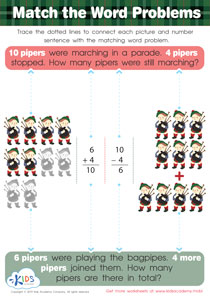Number Recognition Normal Addition Worksheets for Ages 6-8
19 filtered results
-
From - To
Enhance your child’s math skills with our engaging Number Recognition and Normal Addition Worksheets, specially designed for ages 6-8. These worksheets focus on helping young learners identify numbers and apply them in basic addition problems. Each activity supports the development of critical math skills through interactive exercises that make learning fun and effective. With colorful illustrations and clear instructions, kids will enjoy practicing number recognition while building a solid foundation in addition. Perfect for classroom use or at-home activities, these worksheets are a great resource to boost confidence and proficiency in early arithmetic. Explore the joy of math with Kid Academy!
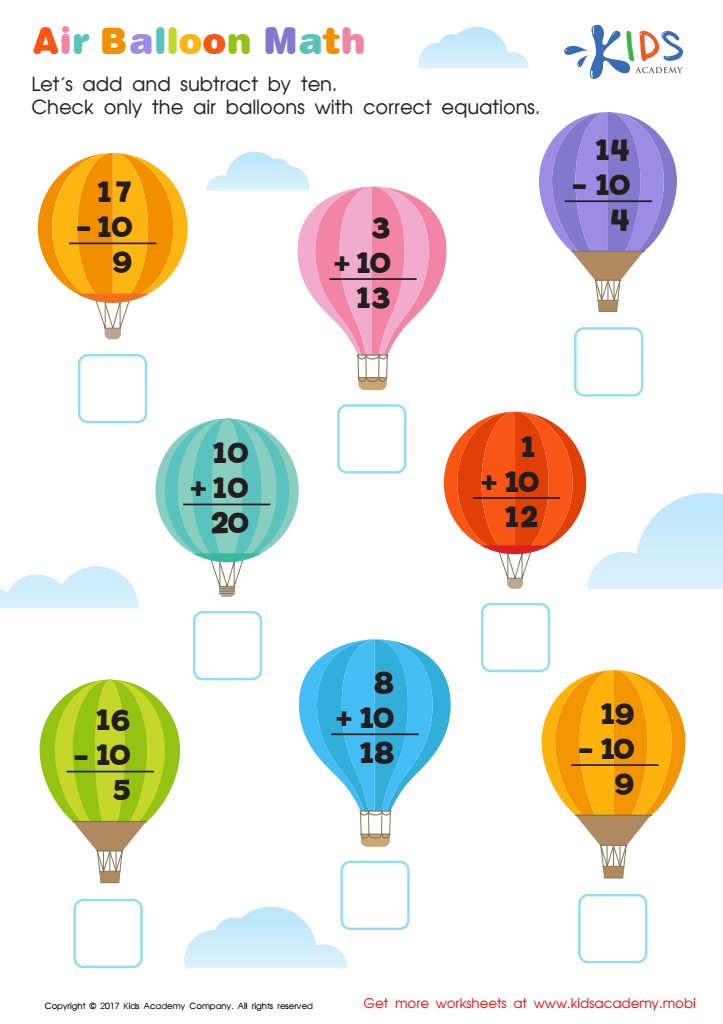

Air Balloon Math Worksheet
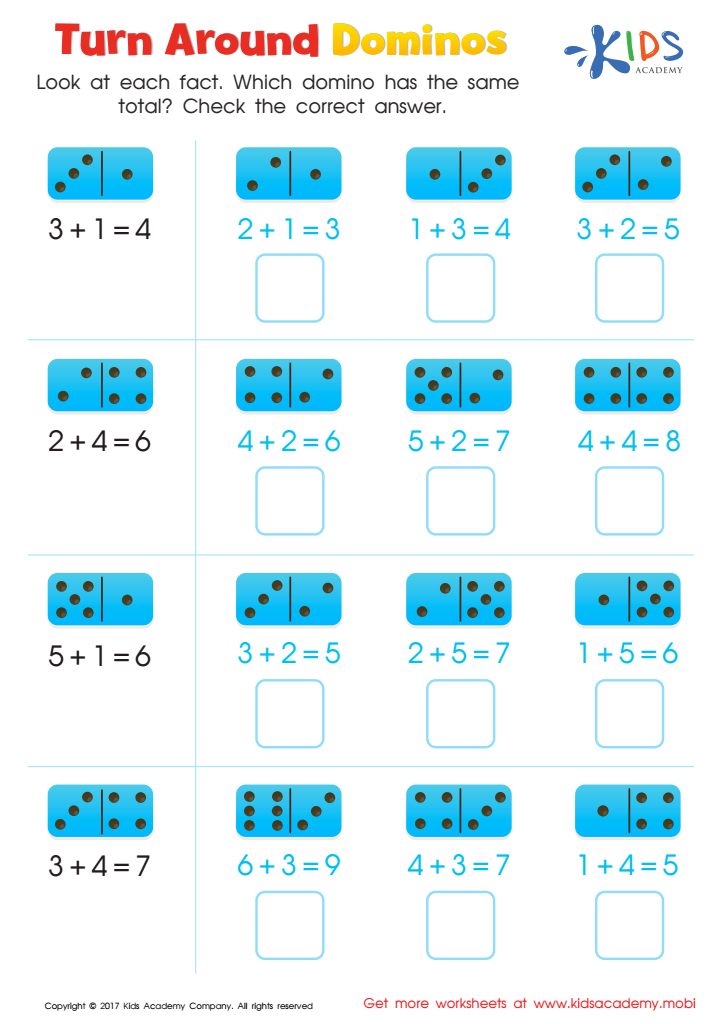

Turn Around Dominos Worksheet
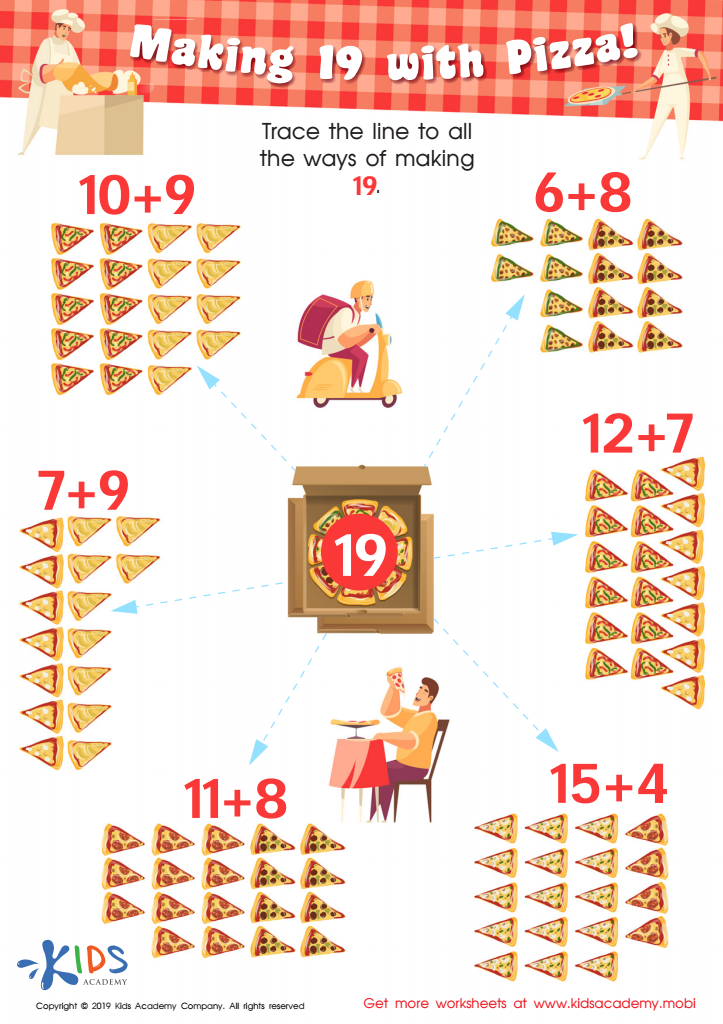

Making 19 with Pizza! Worksheet
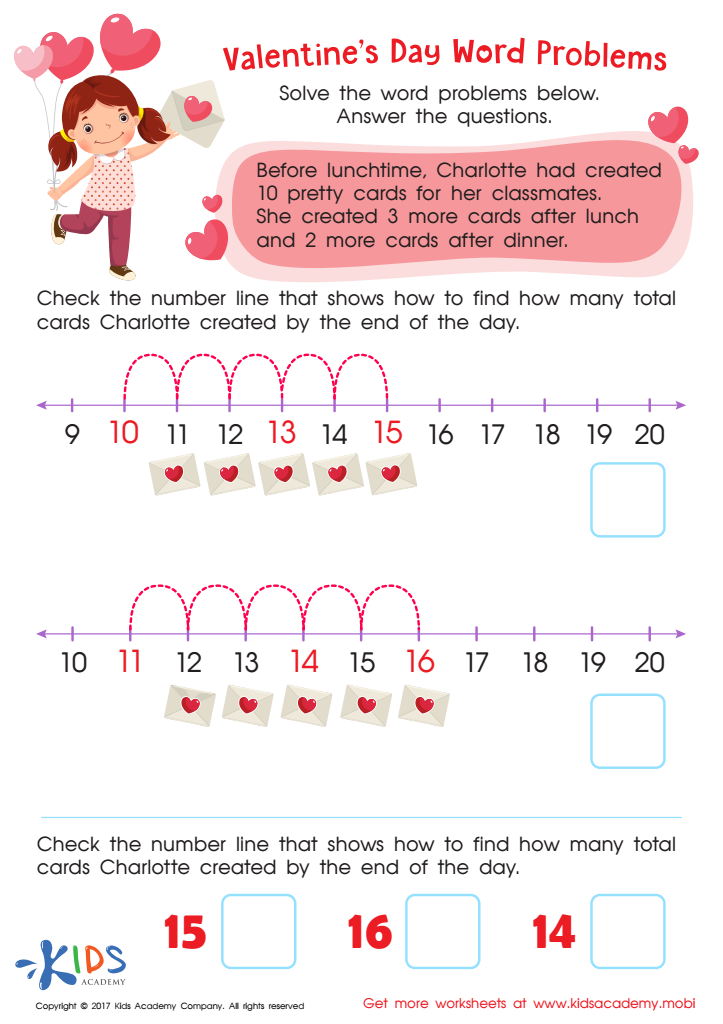

Valentines Day Word Problem Worksheet
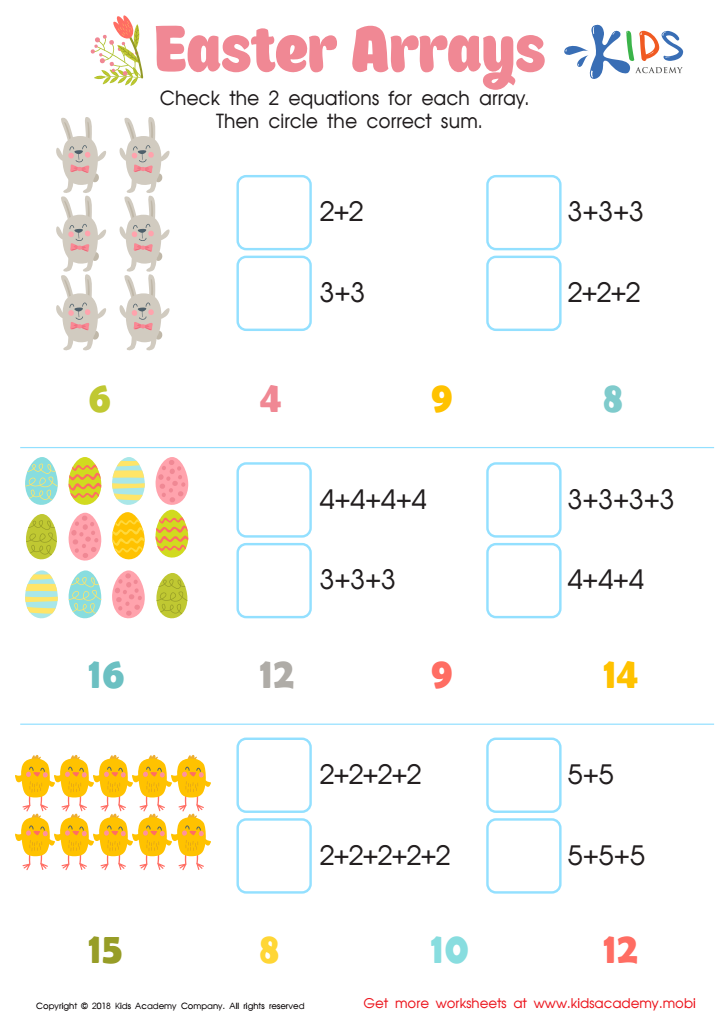

Easter Arrays Worksheet
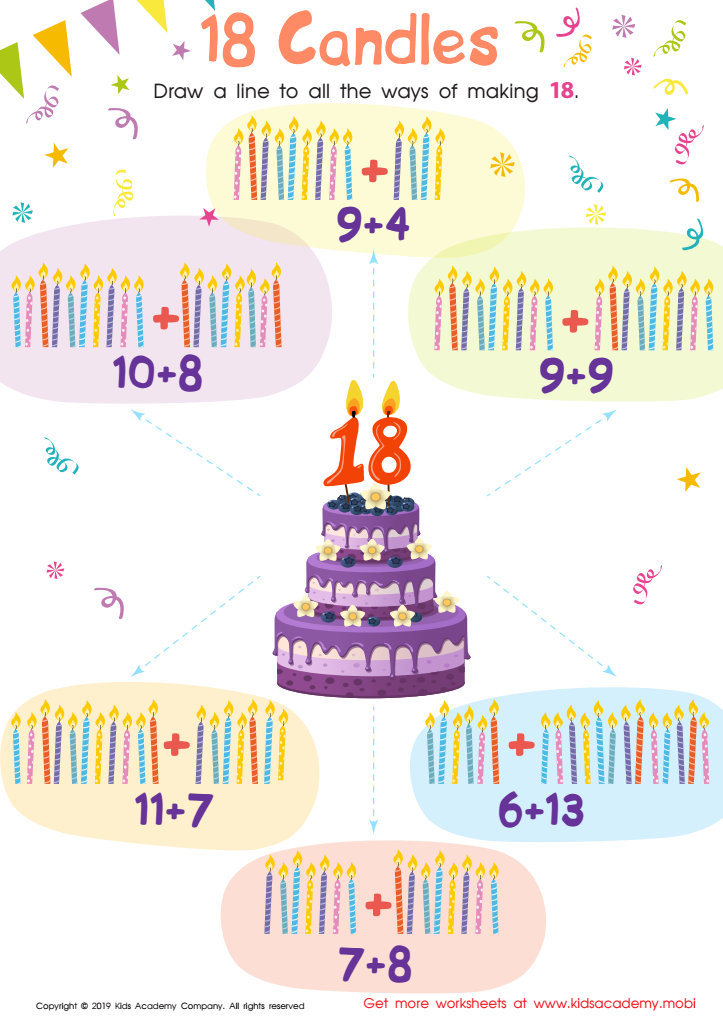

18 Candles Worksheet
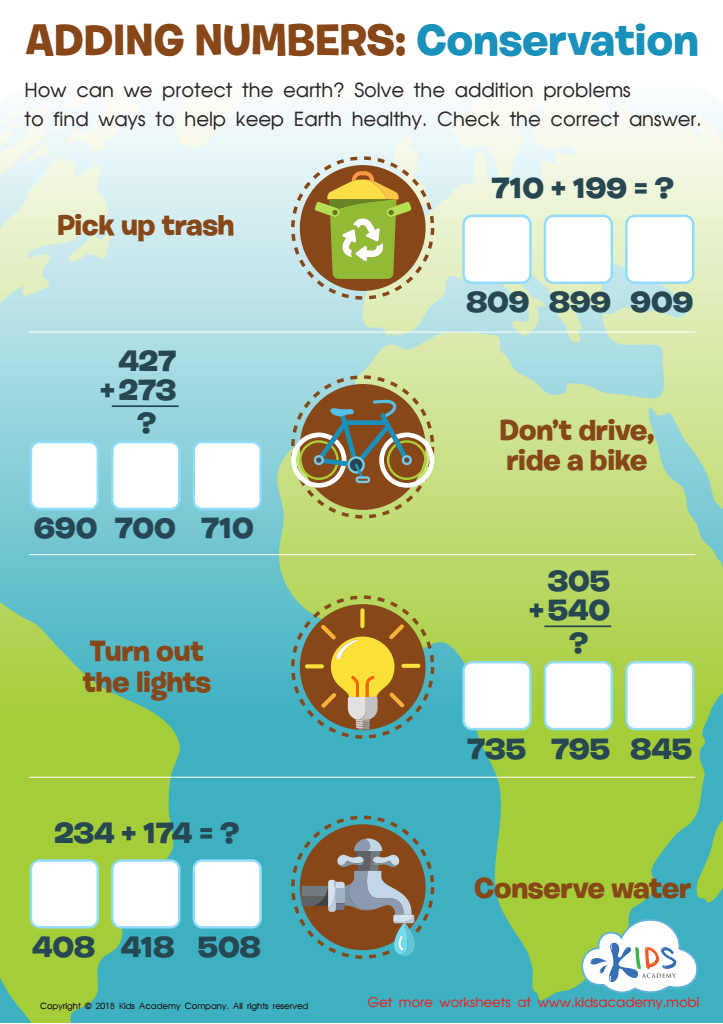

Adding Numbers: Conservation Worksheet
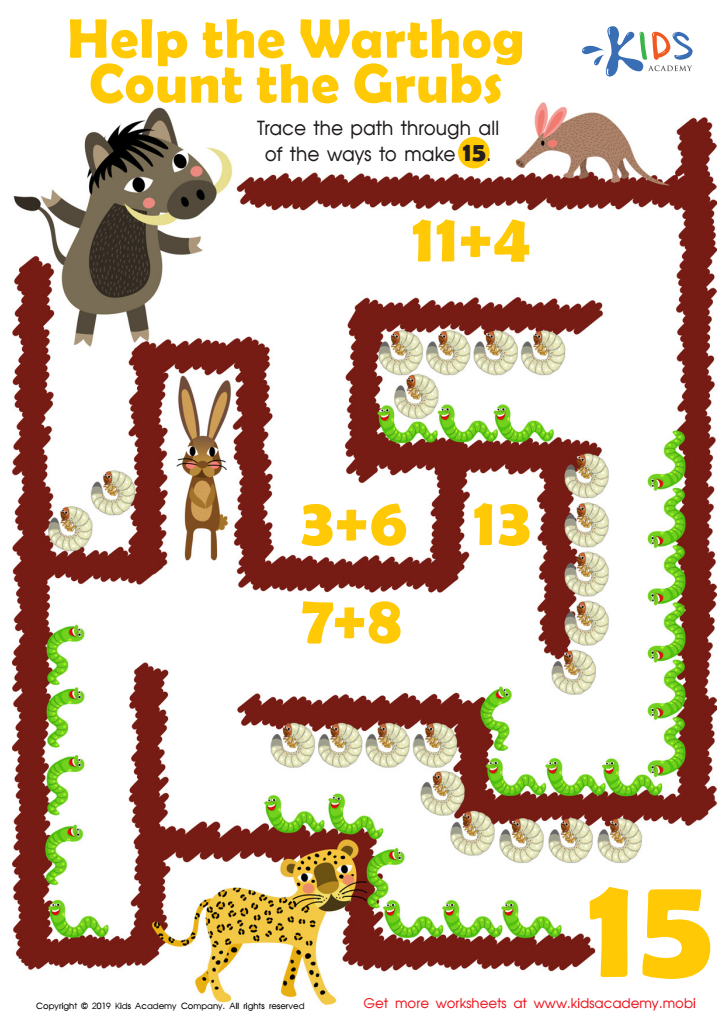

Help the Warthog Count the Grubs Worksheet
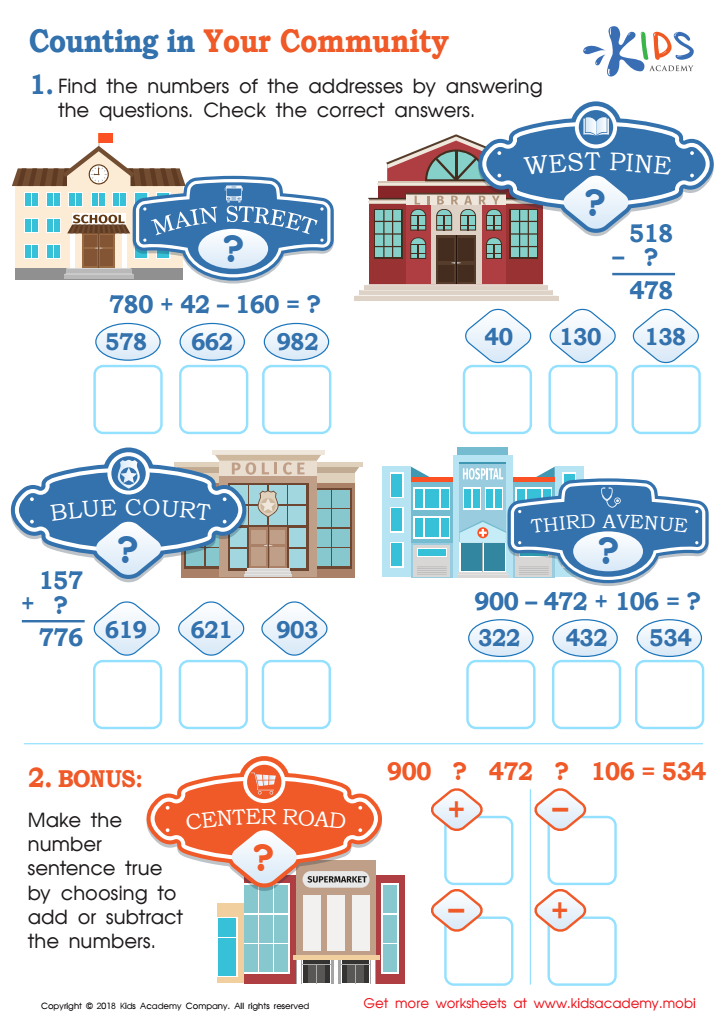

Counting in Your Community Worksheet
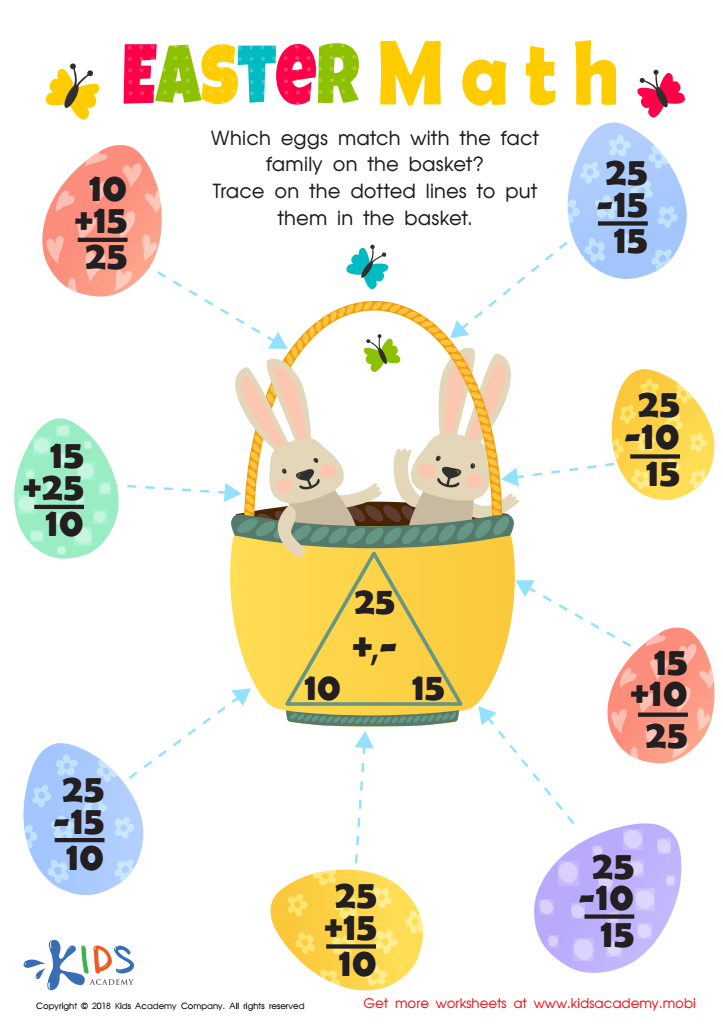

Fact Families: Easter Math Worksheet
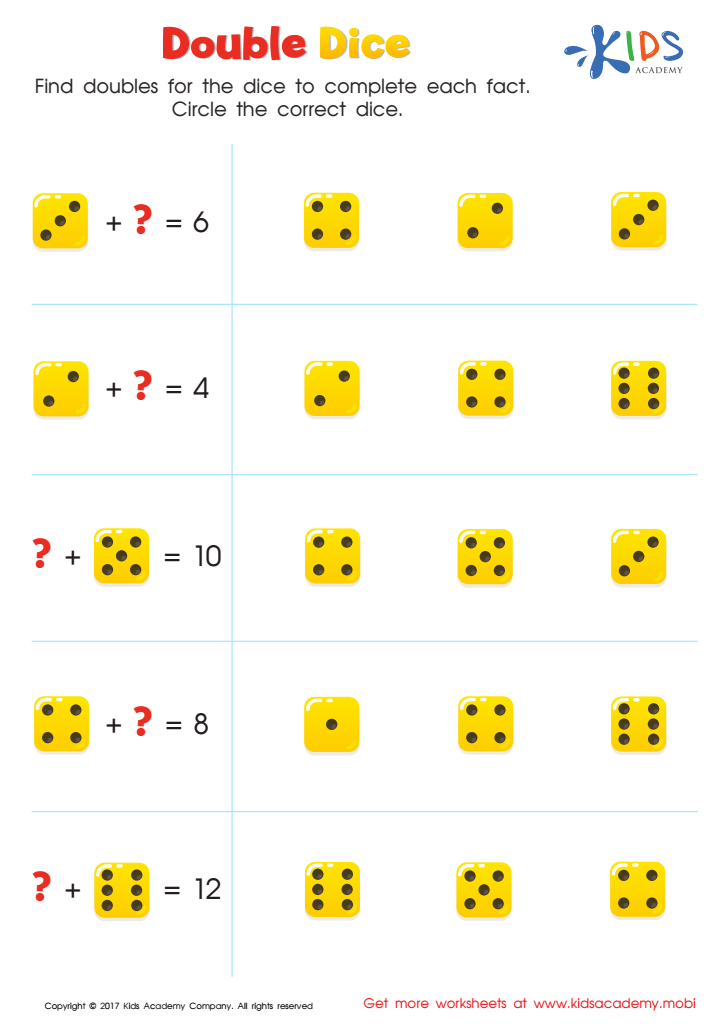

Addition Facts: Double Dice Worksheet
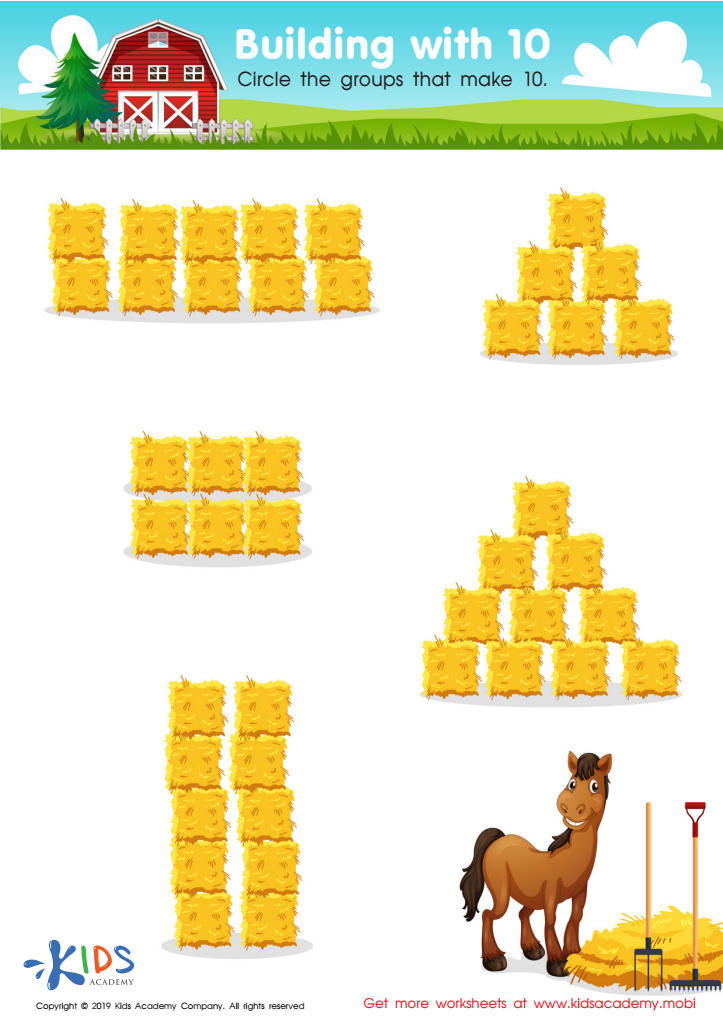

Building with 10 Worksheet
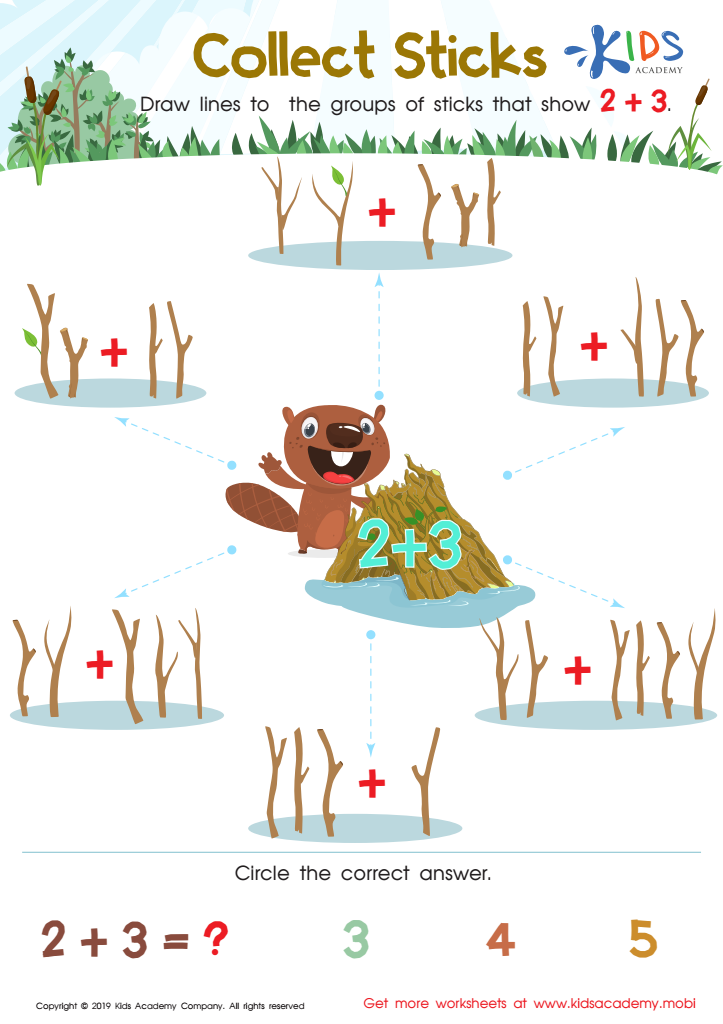

Collect Sticks Worksheet
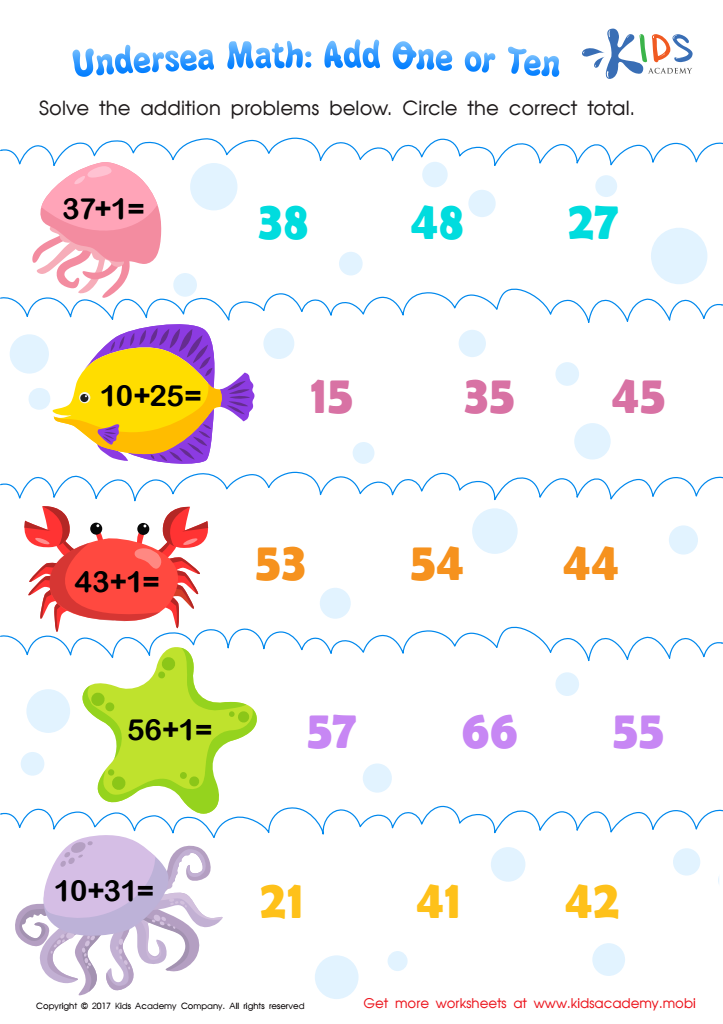

Undersea Math Worksheet
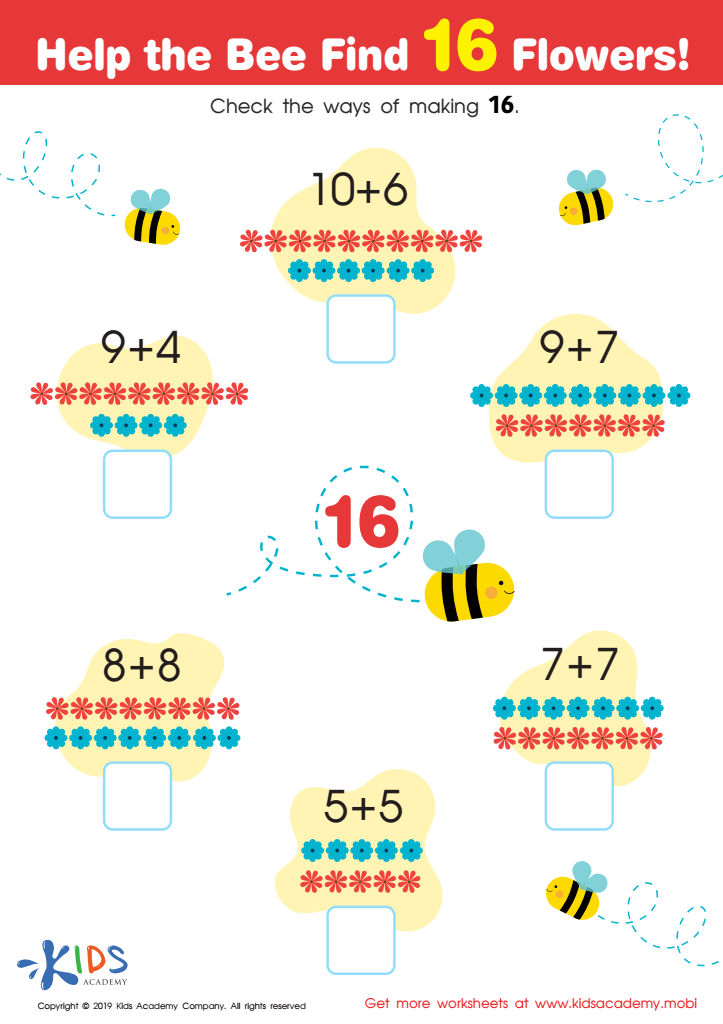

Help the Bee Find 16 Flowers Worksheet
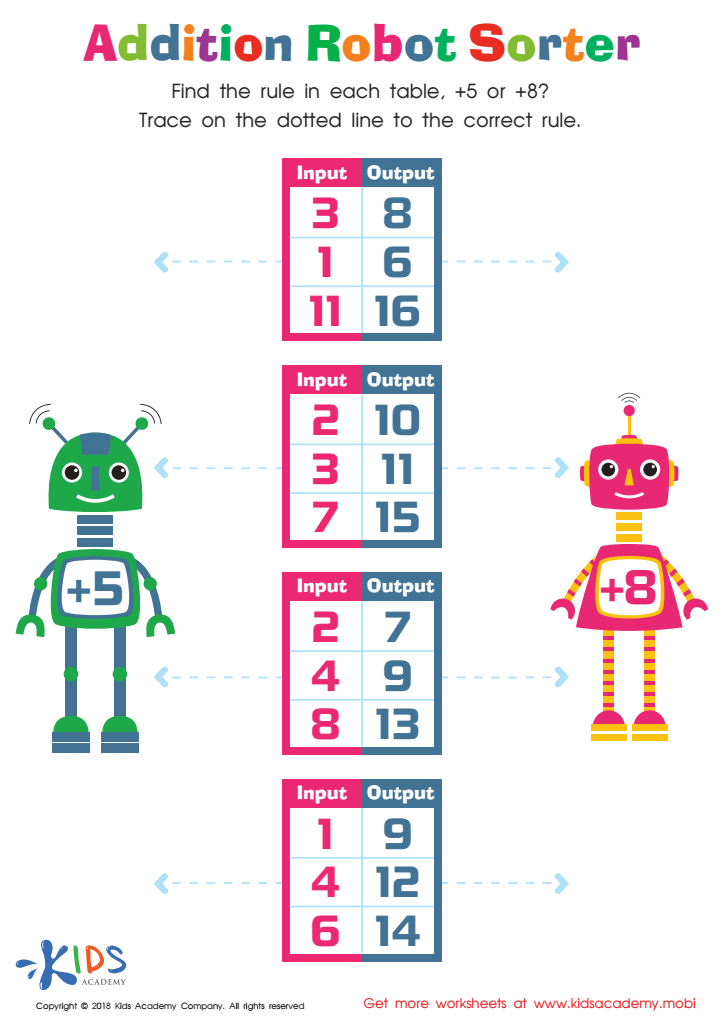

Addition Robot Sorter Worksheet
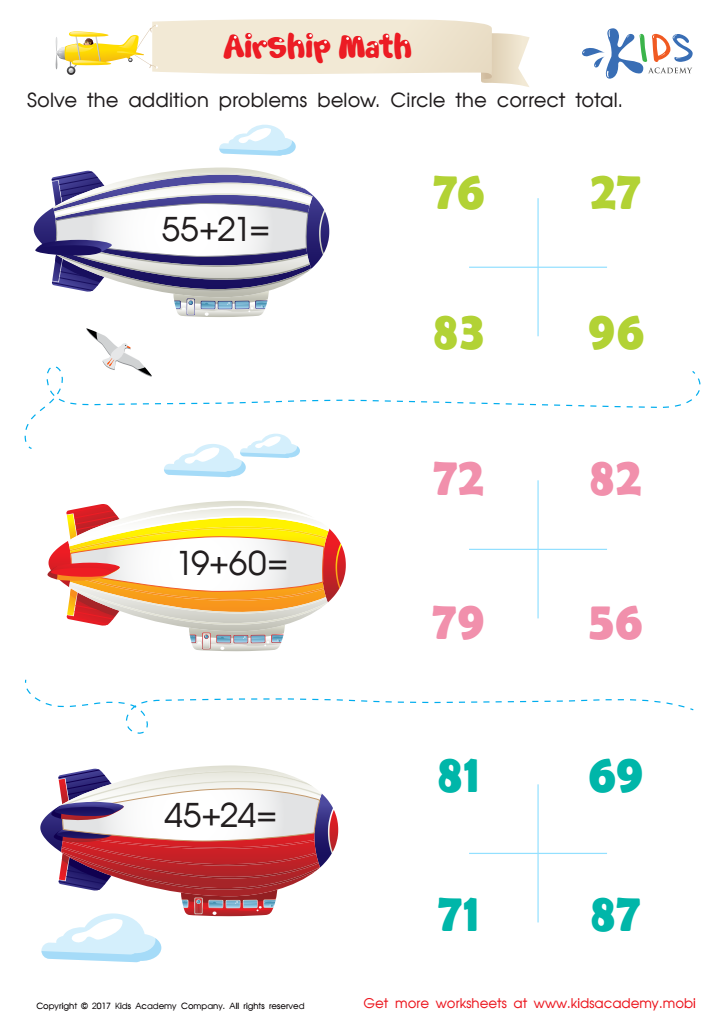

Airship Math Addition Printable
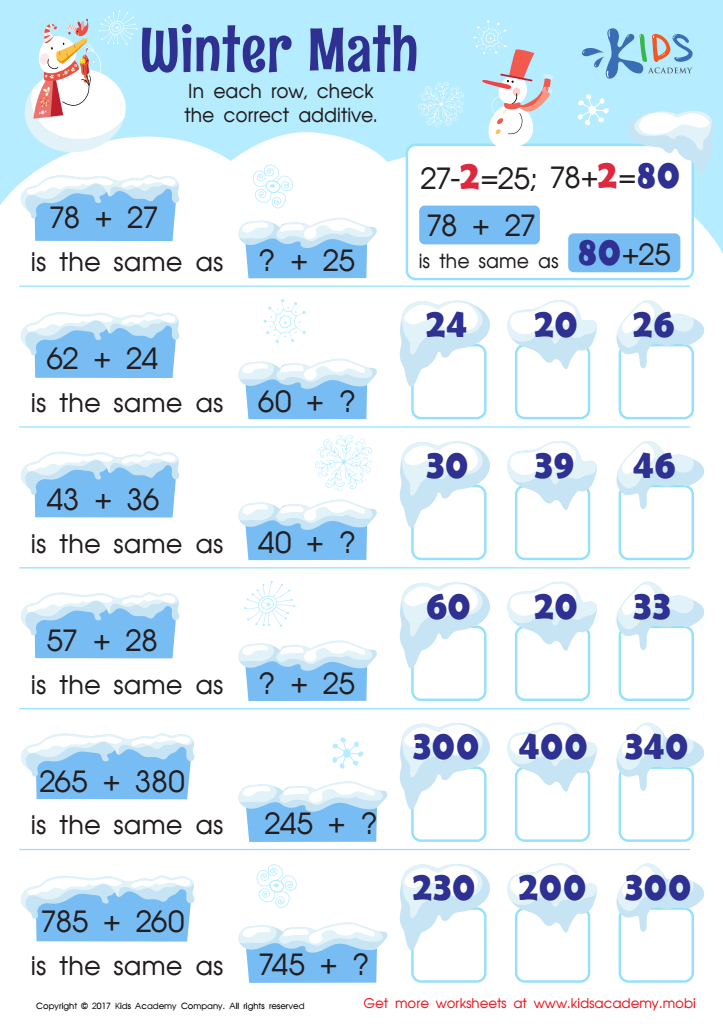

Free Addition Worksheet
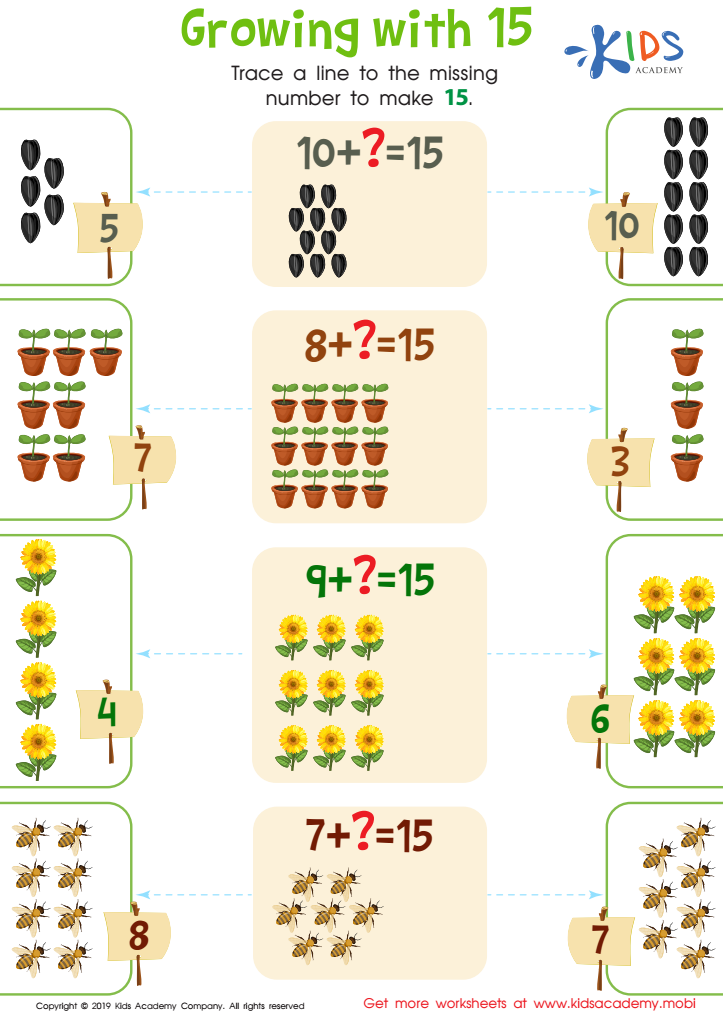

Growing with 15 Worksheet
Parents and teachers should prioritize Number Recognition and Normal Addition for children aged 6-8 as these foundational skills lay the groundwork for future learning in mathematics. At this developmental stage, children typically transition from concrete to more abstract reasoning. Mastering number recognition ensures that they can identify numbers and understand their value, which is essential for progressing in all arithmetic operations.
Normal addition, on the other hand, bolsters children's ability to perform addition accurately and confidently. This skill encourages logical thinking and problem-solving abilities, as it requires understanding how quantities interact. Effective mastery of addition leads to more complex concepts, such as subtraction, multiplication, and division, thus creating a strong mathematical foundation.
Additionally, early competency in these skills can enhance children's confidence and foster a positive attitude towards math. Engaging parents in this process, through fun activities and games, enriches their children's learning experience and forms a supportive environment.
As children learn these essential skills, they are better equipped for academic success and can fully participate in varied mathematical experiences. Ultimately, strong number recognition and addition skills contribute not only to personalized growth but also to a well-rounded education that will benefit children throughout their academic journeys.

 Assign to My Students
Assign to My Students


.jpg)






